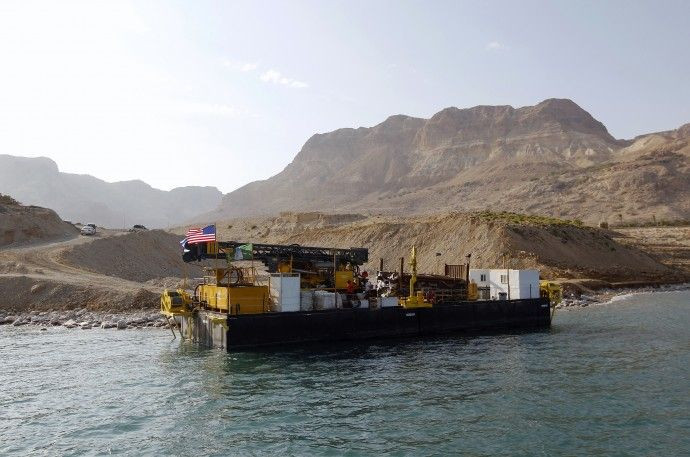Oil field services firms to recover from BP spill shock

The explosion on BP's Deepwater Horizon drilling platform in Macondo early this year was no less than a cut on the oil industry's artery, out of which gushed millions of barrels of oil into the Gulf of Mexico - a tragedy that devastated the Gulf Coast ecosystem, paralyzed an oil behemoth and thwarted the Big Oil's prospects by attracting a moratorium on deepwater drilling and a crippling regulatory environment.
However, the oil services industry, a key segment of the oil industry, is shrugging off the impact of a horrible 2010 and looking up to better prospects next year, an IHS Global Insight special report has said.
The 'IHS Herold Review on the Oil Field Services Sector' predicts a healthier growth outlook for the industry in 2011. It says a general recovery is being driven by rising oil prices, unconventional drilling in North America and multiple opportunities offshore worldwide.
While valuation of the underlying equities in the sector remain about 35 percent below their peak in 2008, we believe strong oil prices and higher exploration and production budgets will help drive growth in the oil field services sector in 2011; and current forward earnings estimates suggest a potential restoration to prior peak 2008 stock price levels by 2012,” said John B. Parry, principal energy analyst at IHS and author of the review.
The review compared key oil company financial performance for the first nine months of 2010 against sector performance for same period in 2009. It included both multi-service companies such as Baker Hughes, Halliburton and Schlumberger as well as offshore drillers Transocean, Diamond Offshore and Oceaneering International, among others.
Of the six leading oil field services companies, only National Oilwell Varco posted a revenue decline (six percent or $8.9 billion in 2010 versus $9.5 billion in 2009), the review points out.
Baker Hughes led the pack of multi-service providers, with a 38 percent increase in revenues ($9.9 billion in 2010 versus $7.2 billion in 2009) during the first nine months of 2010 as compared to the same period in 2009, followed by Halliburton, which posted a 17 percent increase in revenues for the same period ($12.8 billion versus $10.9 billion); and Cameron International, which saw its revenues rise 15 percent during the period ($4.3 billion versus $3.7 billion in 2009).
And in the case of National Oilwell Varco, earnings advanced 14 percent to $1.4 billion despite a revenue decline.
Parry noted that service companies, especially offshore drilling firms, had taken a financial beating following the Gulf drilling moratorium. Companies exposed to the Gulf also incurred costs related to redeploying assets and personnel to other opportunities.
The review says multi-service providers fared better than offshore drillers, who either saw declines in revenue or marginal revenue growth. Oceaneering International was the only company in the segment who posted positive revenue and earnings growth of three percent and eight percent, respectively. Transocean, owner of the Deepwater Horizon rig involved in the Macondo incident, took the hardest hit, with a 19 percent plunge in revenue and a 28 percent drop in earnings.
CHALLENGES
While overall earnings growth is a positive sign for the sector, post-moratorium challenges still persist, the IHS study said. There has been a general decline in rig-utilization rates as the return to drilling has been slow even as the new-build rigs continue to enter a sluggish market. In addition, companies will be under pressure to enhance safety, invest in technology and high-end equipment and add more rigs.
These rig additions may seem daunting to some, but others, like Diamond Offshore, may view them as opportunities, the review says. In its third-quarter earnings conference call, Diamond Offshore said, “With respect to adding to the fleet, we are always looking for opportunities. This company was built through acquisitions in the past, and we will continue to monitor anything that comes along…You can always upgrade a rig, but with some (older types), it’s actually more economic to build a new rig.”
“This attitude, along with an eye toward mergers and acquisitions (M&A) will be a feature of the sector moving forward,” Parry said.
© Copyright IBTimes 2024. All rights reserved.





















